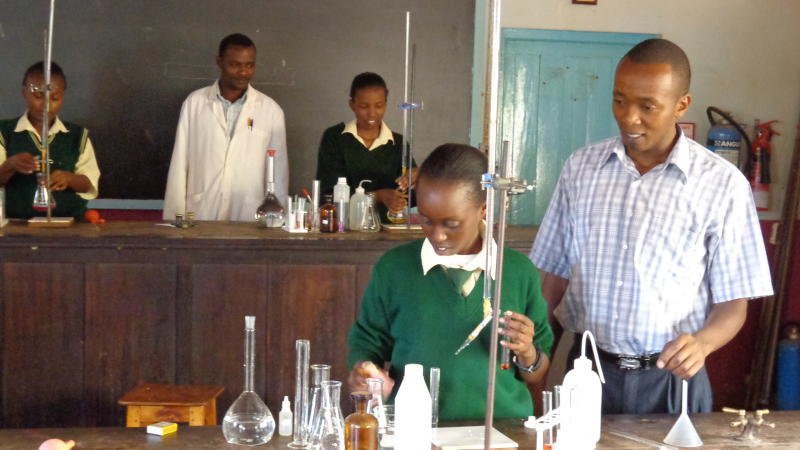×
The Standard e-Paper
Home To Bold Columnists

Students at Kahuhia Girls High School in Murang'a County trying their hand in a science laboratory being assisted by their teachers. [Boniface Gikandi, Standard]
A little under two weeks ago, Tik Toker Eric attributed the indiscipline that gripped high schools last year to several factors. In a widely shared video, Eric, who claimed to be a student, alleged that students found the knowledge they were acquiring meaningless. All that students require are skills they will use to earn a living—not useless knowledge.